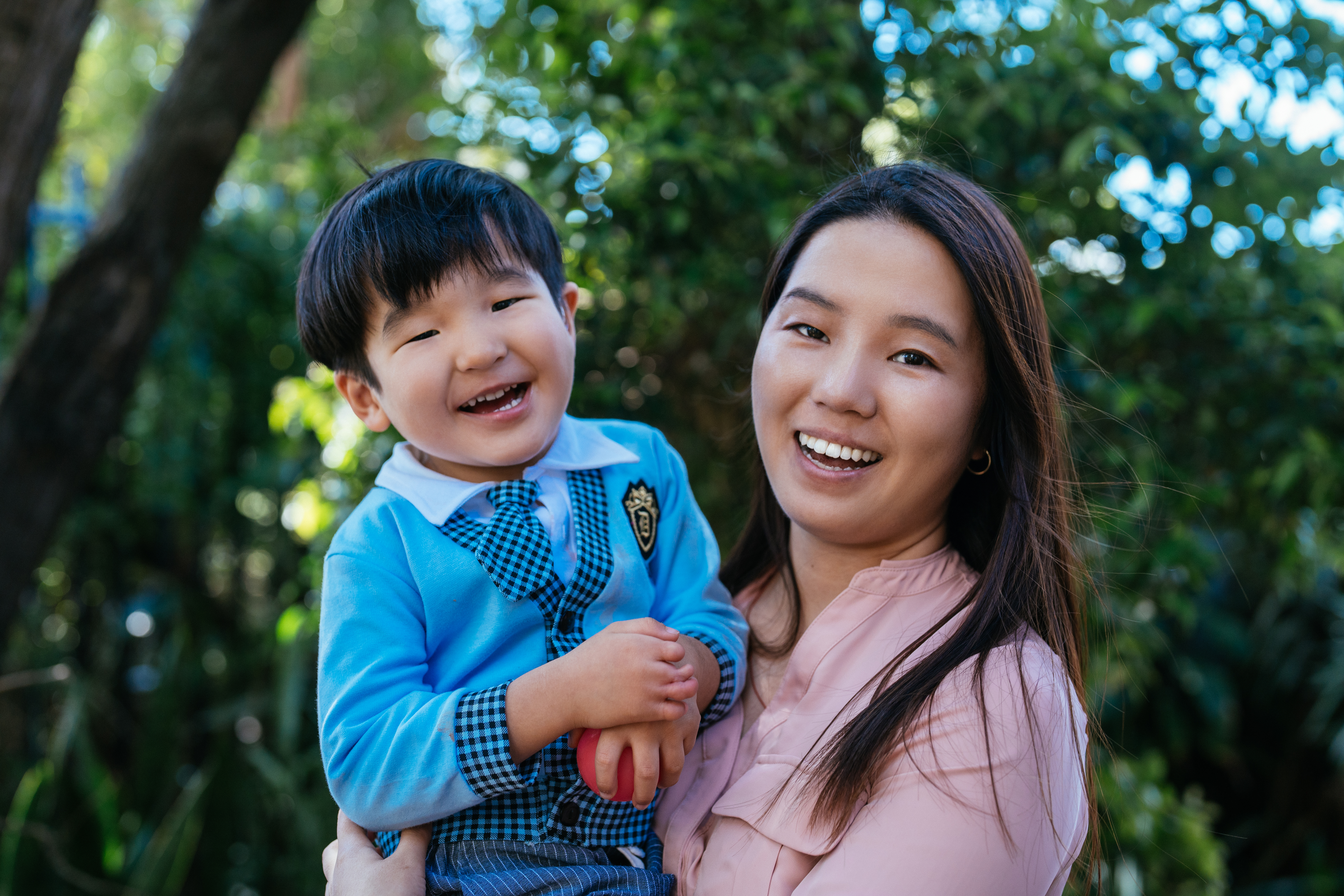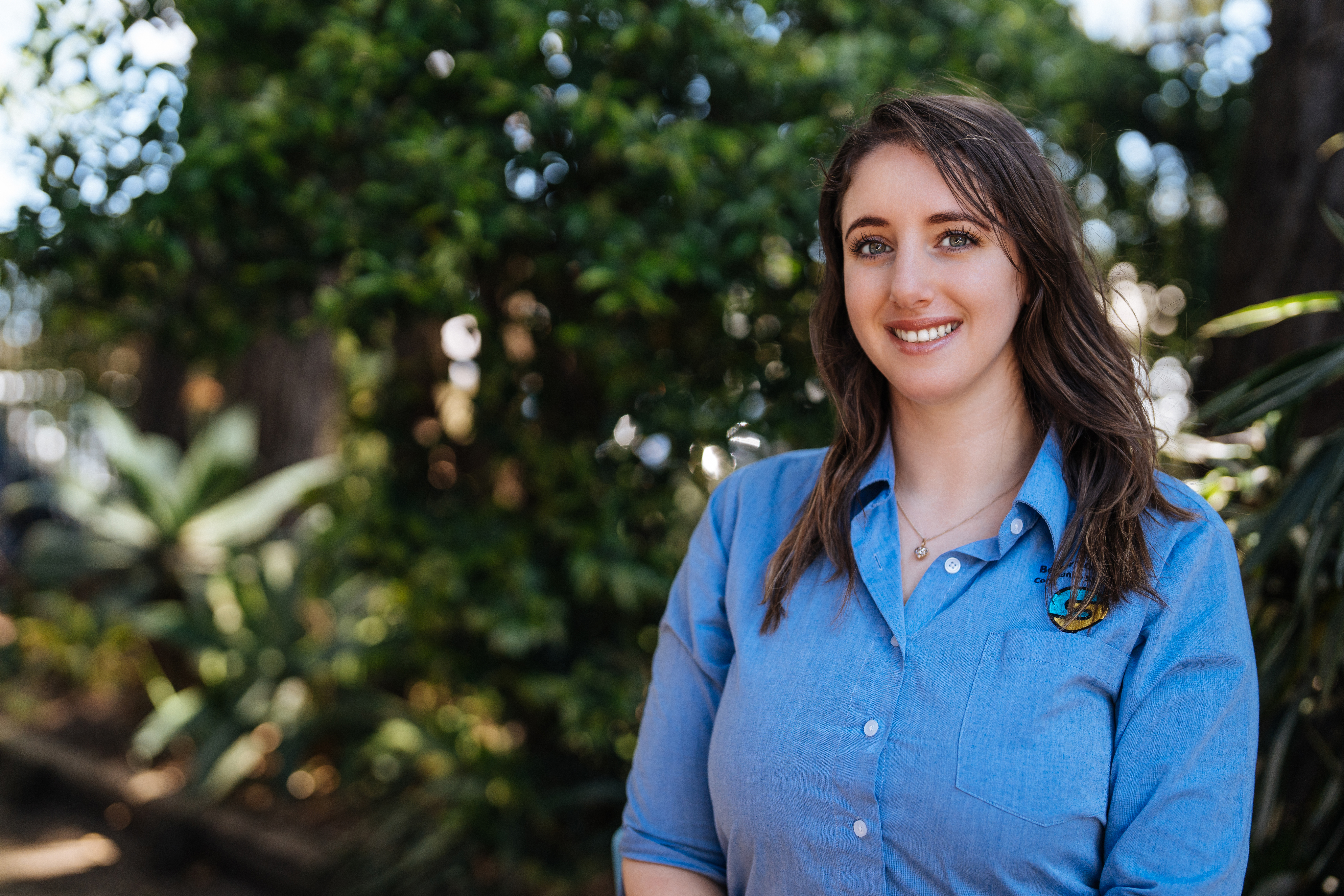Automatic language translation
Our website uses an automatic service to translate our content into different languages. These translations should be used as a guide only. See our Accessibility page for further information.
Social and cultural isolation nearly left the children in Rockdale’s Mongolian community behind, but an unexpected partnership between two passionate community advocates, turned everything around.

Imagine raising your child in a country where you don’t speak the language.
Now imagine raising your child in a country where you don’t speak the language in the middle of a pandemic.
How would you feel? Anxious, worried, scared?
That’s how many in Rockdale’s Mongolian community felt when the COVID-19 pandemic left their already vulnerable community, feeling even more isolated and fragile than before.
Enter Riham Zeini. Riham is a Targeted Earlier Intervention family support officer working for Better Connected Communities in Rockdale. In her role, Riham supports local families, sharing knowledge, information and tools to help their children and families thrive.
When the state went into lockdown, Riham was worried about the emerging Mongolian community she had recently become aware of, and how this would further restrict their access to information and support.
“I was concerned for their welfare during COVID-19 lockdowns due to the language barrier and their lack of access to Medicare or government welfare.”
“I wanted to reach out, but it was difficult as we didn’t have trust built up at that stage,” Riham explains.
Riham’s empathy and compassion drove her to find a way of connecting with the community.
Through the Australian Mongolian Community group, Riham was able to connect with Khanddorj, a Mongolian community member living locally. On Riham’s invitation, Khanddorj a passionate advocate for her community, together with her eighteen-month-old son, began attending Better Connected Communities’ ‘Let’s Create’ craft workshop.
“After the [first] workshop, I asked Riham if I could invite some of the other people in my community. I put the flyer on my Facebook page and translated it into Mongolian,” says Khanddorj.
With Khanddorj’s help, ‘Let’s Create’ served as the first step in connecting Riham and Better Connected Communities with Mongolian families in Rockdale.
Spending time with the families, Riham began to see that language barriers coupled with social isolation, meant many of the local children were missing out on basic health and developmental checks, transition-to-school programs and early-learning play groups, simply because their parents weren’t aware of the services that could support them.
“Some of the children were about to start school and needed a diagnosis. The families didn’t understand the school system in Australia and their lack of understanding left them feeling as though they couldn’t provide for their kids. They were feeling stressed and overwhelmed.”
Together with Khanddorj’s support, Riham was able to speak to the families about Targeted Early Intervention, the school system and the importance of regular and early health checks for children. Families were offered support through services such as playgroups, childcare, and parenting support services, and were invited to participate in a series of free Better Connected Communities events. These included Dentist Day, Speech Day, and a ten-week physical development workshop, which focused on gross motor skills and nutrition.
For children starting school, Riham organised a ‘transition-to-school’ day where families visited the local school and met with the deputy principal. Here they were given all the paperwork they needed, as well as help filling in the forms.
Better Connected Communities now enjoys a strong relationship with the Mongolian community. The families Riham was initially concerned about, are now proactively engaged with Targeted Early Intervention services and are more confidently integrated in the broader community.
For Riham, she’s most proud of her efforts connecting with, and supporting this vulnerable community, to prepare the local children for school. Her outreach meant families accessed the help that was there for them, before issues escalated. Riham believes it was an achievement only made possible by the generosity and support of Khanddorj.
“Making an initial connection proved to be the hardest challenge of all. I was very lucky to have Khanddorj who bridged the gap and helped us interpreting and sharing information.”
Thanks to the work of Riham and Better Connected Communities, and with the help of Khanddorj, Rockdale’s Mongolian community now has a sense of belonging and the support they need for their families and children to flourish.
Are you a TEI practitioner or someone with an interest in TEI practice? Take a closer look at the practice behind the story and learn how these TEI practitioners were able to connect with their clients and communities to achieve strengths-based and person-centred outcomes.

Riham is a Family Support and Development Officer working for Better Connected Communities in Rockdale. Riham is an innovative thinker who is passionate about meeting her community where they are at.
Knowing our community and building relationships with families, as well as with key people that can make further connections with those who are isolated or recently migrated, is a key driver of success in our work. It is also valuable to ensure families find us approachable and feel comfortable to engage in open discussions. Consistency of practice, sensitivity, and understanding cultural norms are key drivers in bridging the gap between the community and support services.
Doing things differently, on its own, is not enough, you must be adaptive in your practice to keep on track with updates, changes in community, and latest releases from DCJ. Therefore, I found the best approach for our service was to go to the clients instead of asking them to seek us. I went to the local gathering points, parks and shopping centres and spoke to random community members with children, introducing myself and offering my services. Other factors that supported me included; offering one-on-one, as well as group sessions, creating a soft entry point, making both my face and name known to the community, using social media, and listening to the community’s needs to create events/workshops to meet them.
We are fortunate to be navigators of the Rockdale Children and Families Hub, which is a partnership of services working collaboratively to support families and children to achieve their best before starting school. We also explore and access local support services, interagency collaborations, and the DCJ and FAMS websites for additional support.
Service partnerships and collaborations are very important in supporting clients in the community. Our service alone cannot cater to all the client needs; therefore, we work alongside family, health, education, children, and domestic violence services to gain the best possible outcomes and referrals.
It is very important to use trauma informed, strengths-based, and person-centred practices with families as they have overcome many struggles just to enter the country. Along with COVID and lockdowns there’s a build-up of trauma and cultural sensitivity. Solving their problems is only a short-term help, however, teaching and connecting them with appropriate services, empowers them to seek future support and build independence and resilience without offending anyone.
Language was and remains a barrier, especially with emerging communities where there are no resources available in that language. We often rely on google translate and local interpreters to relay and receive information. We have found the biggest issue to be visa status and finding support services that are available for free. Location and travel are also barriers as families struggle to travel, especially with multiple children or across several suburbs.
All our work follows the client centred approach, with time provided to think and consult family. Everything is completed in confidence with the client and what I can’t explain I will seek further support to ensure they understand and are given the full picture. I also try to break everything down and provide all possible options (even if it’s not an option I would personally suggest).
One of my bigger decisions was to listen to the needs of the community and create events based on them. This included sport days, Mother’s Day morning teas, transition to school sessions, and Christmas parties. The responses from these days will forever be proof of the positivity and benefits of these decisions. I would hear things like “I made a friend today” (from an adult), “this gave me the opportunity to celebrate with friends and my community because I have no family here and would never have done anything like this” (in relation to Christmas celebration).
The earlier you can resolve/support issues, particularly for children, the better the outcomes for the client’s future. Working with vulnerable communities, finance is always an issue, therefore it is better to provide and access early support as it is free (or cheaper) and easily accessible. Also, early intervention builds skills, strategies and resilience to better support and empower individuals and communities.
I would encourage you to go out and make the first contact, keep up to date on your community, and don’t be afraid to seek information or advice from other agencies.
If you believe someone you know would benefit from some extra support or connecting with community services, search TEI on ServiceSeeker to find a service. If you need help finding a TEI service visit Family Connect and Support.
If you’re working with a family or young person and would like to refer to one of these services, search TEI on ServiceSeeker.
Last updated: